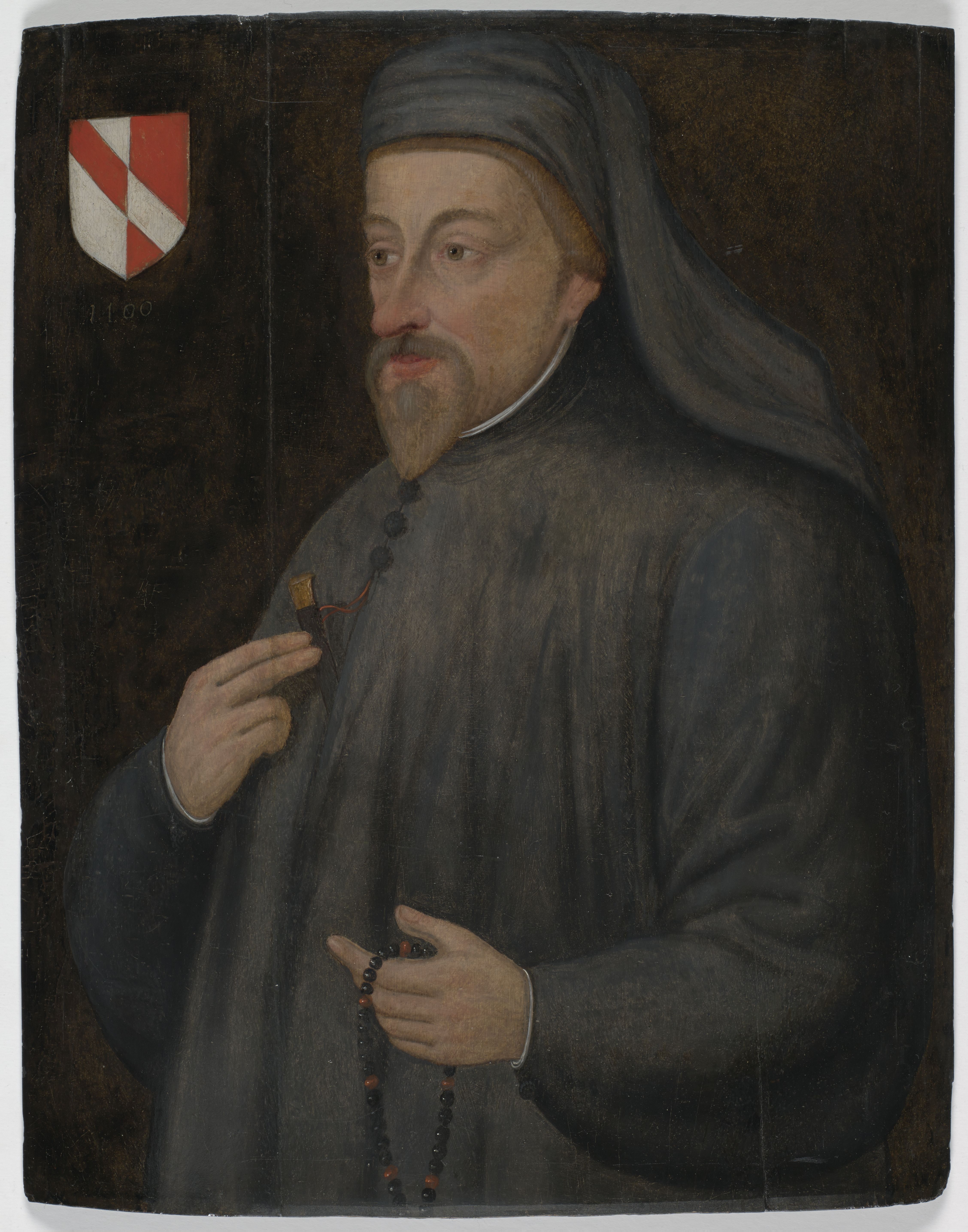„Das Leben so kurz, das Handwerk so lang zu lernen.“
The Parliament of Fowls, 1382
Original engl.: "The lyf so short, the craft so longe to lerne."
Geoffrey Chaucer war ein englischer Schriftsteller und Dichter, der als Verfasser der Canterbury Tales berühmt geworden ist. In einer Zeit, in der die englische Dichtung noch vorwiegend auf Latein, Französisch oder Anglonormannisch geschrieben wurde, gebrauchte Chaucer die Volkssprache und erhob dadurch das Mittelenglische zur Literatursprache. Sein Familienname leitet sich vom franz. chausseur, „Schuhmacher“, ab. Wikipedia

„Das Leben so kurz, das Handwerk so lang zu lernen.“
The Parliament of Fowls, 1382
Original engl.: "The lyf so short, the craft so longe to lerne."
“Fie on possession,
But if a man be vertuous withal.”
The Franklin's Tale, l. 10998
The Canterbury Tales
“The firste vertue, sone, if thou wilt lere,
Is to restreine and kepen wel thy tonge.”
The Manciples Tale, l. 17281
Bartlett's Familiar Quotations, 10th ed. (1919), Canterbury Tales
“He coude songes make, and wel endite.”
General Prologue, l. 95
The Canterbury Tales
“Eke wonder last but nine deies never in toun.”
Book 4, line 525
Troilus and Criseyde (1380s)
“In his owen grese I made him frie.”
The Reeve's Tale, l. 6069
The Canterbury Tales
“And for to see, and eek for to be seie.”
The Wife of Bath's Tale, l. 6134
The Canterbury Tales
“Allas! allas! that evere love was synne!”
The Wife of Bath's Prologue, l. 614
The Canterbury Tales